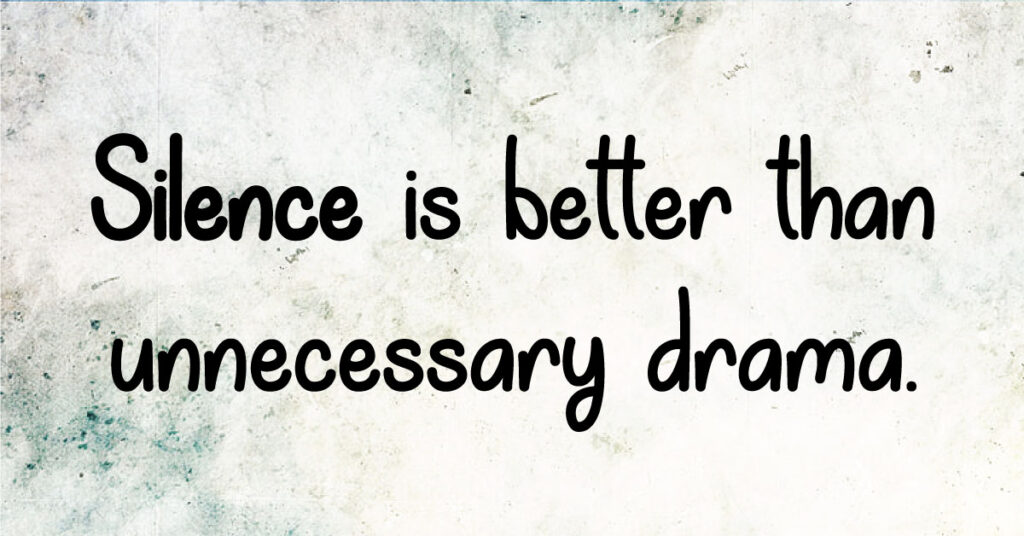Our behaviors are a direct reflection of our thoughts, emotions, and beliefs. They give us insight into our inner world and reveal how we interact with the external environment. Sometimes, we may find ourselves engaging in behaviors that don’t align with our values or desires, leaving us feeling disconnected or unfulfilled.
Understanding the motivations behind these behaviors can help us uncover the root cause and make positive changes to our lives. By examining our actions and behaviors, we can gain insight into our mental and emotional states, enabling us to develop healthier habits, cultivate stronger relationships, and live more authentic and fulfilling lives.
It is important to differentiate the behavior from the person
It’s important to recognize that our behaviors are not always an accurate representation of who we are as individuals. Sometimes, we may engage in certain behaviors that are out of character or inconsistent with our values due to stress, pressure, or personal struggles. Therefore, it’s crucial to avoid making judgments about a person based solely on their behavior. Instead, we should strive to understand the underlying reasons behind their actions and behaviors.
Moreover, some behaviors could be interpreted as negative or undesirable, but they don’t necessarily define a person’s character. For instance, someone who is quiet and reserved in social settings might be labeled as antisocial, but in reality, they might be struggling with social anxiety or prefer more intimate settings. Similarly, someone who is always talking and seeking attention might be seen as annoying or narcissistic, but they could be trying to compensate for feelings of insecurity or lack of validation.
Therefore, it’s essential to avoid jumping to conclusions based on behavior alone. Instead, we should approach others with empathy, compassion, and understanding, recognizing that our behaviors are influenced by a wide range of internal and external factors. By doing so, we can foster healthier relationships, promote understanding and acceptance, and avoid unfairly judging others based on surface-level observations.
Here are 7 negative behaviors of people that you should ignore, and how you can help them
While it’s important not to judge others based solely on their behavior, some negative behaviors can be challenging to deal with. Here are seven such behaviors and some approaches you can take to help those who exhibit them:
Passive-aggressiveness
Passive-aggressiveness is a behavior that can be frustrating and confusing for those around the person exhibiting it. It involves expressing anger or frustration indirectly through subtle cues, sarcasm, or other underhanded means. If you’re dealing with someone who exhibits passive-aggressive behavior, it’s important to encourage open communication and address the underlying issue directly.
Validate their feelings and let them know that their concerns matter to you. Try to avoid reacting defensively or aggressively to their behavior. Instead, take the time to understand what’s going on and what led to their behavior.
By addressing the root cause of their passive-aggressiveness and working towards clear communication and mutual understanding, you can help them move towards more positive and productive interactions.
Blaming and defensiveness
Blaming and defensiveness are behaviors that can create conflict and strain relationships. When someone exhibits these behaviors, they may struggle to take responsibility for their actions and become defensive when confronted. If you find yourself in this situation, it’s important to remain calm and composed. Express empathy for their feelings and try to understand why they’re reacting this way.
Avoid placing blame or attacking them, instead, focus on finding solutions that can help resolve the issue.
By remaining calm and understanding while addressing their behavior, you can encourage them to take responsibility for their actions, break down communication barriers, and foster a more positive relationship based on trust and mutual respect.
Gossiping
Gossiping is a negative behavior that can harm relationships and create a toxic environment. Those who engage in gossip may spread rumors or talk negatively about others behind their backs, causing harm to the individuals they’re discussing and damaging trust within their social circle. If you’re dealing with someone who engages in gossip, it’s important to steer the conversation away from negative topics and model positive behavior.
By setting a positive example and promoting healthy communication, you can help steer the conversation away from harmful topics and foster an environment of trust, respect, and positivity.
Narcissism
Narcissistic behavior is a complex issue that can be challenging to deal with. People who exhibit narcissistic behavior may prioritize their own needs and wants over others, leading to a lack of empathy and difficulty forming meaningful relationships. If you’re dealing with a narcissistic individual, it’s important to set clear boundaries and express your needs and feelings.
Avoid enabling or reinforcing their behavior by refusing to engage in their demands and prioritizing your own well-being. It’s also important to recognize that narcissistic behavior may stem from deeper underlying issues, such as low self-esteem or unresolved trauma. While you can’t change someone else’s behavior, you can encourage them to seek professional help and support them on their journey toward healing and personal growth.
By setting clear boundaries and promoting healthy communication, you can help those who exhibit narcissistic behavior move towards more positive and fulfilling relationships.
Anger and aggression
Dealing with someone who exhibits anger or aggression can be challenging. Those who struggle with managing their emotions may lash out in inappropriate ways, causing harm to themselves and those around them. If you find yourself in this situation, it’s important to remain calm and composed. Express empathy for their feelings and try to understand why they’re reacting this way. Avoid reacting defensively or aggressively, as this can escalate the situation.
Instead, focus on finding constructive ways to address the underlying issue and help them manage their emotions more effectively. Encourage healthy coping mechanisms such as exercise, meditation, or therapy.
By remaining calm and understanding while addressing their behavior, you can promote healthier emotional management and foster a more positive and productive relationship.
Lying and deceit
Lying and deceit are negative behaviors that can damage trust and create a toxic environment. People who intentionally mislead others or withhold information may do so for a variety of reasons, including fear of judgment, desire for personal gain, or lack of trust in others. If you find yourself dealing with someone who exhibits these behaviors, it’s important to encourage honesty and model integrity in your own actions.
Create a safe environment for open communication, where people feel comfortable sharing their thoughts and feelings without fear of judgment or retribution. Encourage them to be honest about their actions and motives, and avoid reacting with anger or aggression if you discover that they’ve been dishonest.
By promoting honesty and integrity and creating a safe environment for open communication, you can help those who exhibit lying and deceit move towards healthier, more positive relationships.
Manipulation
Manipulative behavior is a negative behavior that can harm relationships and create a toxic environment. People who exhibit manipulative behavior may use others for personal gain or exert control over them through deception or coercion. If you’re dealing with someone who exhibits manipulative behavior, it’s important to set firm boundaries, express your needs and feelings, and avoid enabling or reinforcing their behavior.
Refuse to engage in their demands and prioritize your own well-being. It’s also important to recognize that manipulative behavior may stem from deeper underlying issues, such as low self-esteem or unresolved trauma. While you can’t change someone else’s behavior, you can encourage them to seek professional help and support them on their journey toward healing and personal growth.
By setting clear boundaries and promoting healthy communication, you can help those who exhibit manipulative behavior move towards more positive and fulfilling relationships.
It’s important to approach these behaviors with empathy, compassion, and understanding, recognizing that they may stem from personal struggles or past trauma. By avoiding judgment and offering support and guidance, you can help those who exhibit these behaviors move towards positive change and growth.








